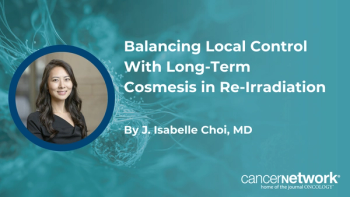
Metastatic Breast Cancer Patients Who Attain No Evidence of Disease Live Longer
The attainment of “no evidence of disease” after treatment for metastatic breast cancer is significantly associated with prolonged survival, according to a new study.
The attainment of “no evidence of disease” (NED) after treatment for metastatic breast cancer (MBC) is significantly associated with prolonged survival, according to a new study. Patients who were HER2-positive in this group also survived longer than those who were estrogen receptor (ER) positive.
Previous studies have found that between 5% and 10% of MBC patients survive more than 5 years, and 2% to 5% live beyond 10 years. “This albeit uncommon but distinctive subset challenges the belief that MBC is universally fatal,” wrote study authors led by Andrew J. Bishop, MD, of the University of Texas MD Anderson Cancer Center in Houston.
The new study aimed to characterize patients with MBC who attain NED status, to assess outcomes compared with those who do not. Results were
Investigators reviewed results for 570 consecutive patients with MBC treated between January 2003 and December 2005. Ninety of these (16%) attained NED, which the researchers defined as a complete metabolic response on PET, or sclerotic healing of bone metastases on CT or MRI. The median follow-up period for those who attained NED status was 100 months.
For the full cohort of 570 patients, the 3-year survival rate was 44%, and the 5-year survival rate was 24%. In contrast, those survival rates in NED patients were 96% and 78%, respectively.
At 2 years, NED status was significantly associated with survival, with a hazard ratio (HR) for mortality of 0.23 (95% confidence interval [CI], 0.16–0.34; P < .001). This was similar at 3 years as well, with an HR of 0.20 (95% CI, 0.14–0.30; P < .001). The median survival for NED patients was 102 months from the time of attaining NED status, and the 5-year progression-free survival rate was 40%.
On multivariate analysis, patients who had HER2-positive disease had better overall survival than those with ER-positive disease, with an HR of 0.44 (95% CI, 0.21–0.90; P = .02). Trastuzumab use was significantly associated with progression-free survival.
After adjustments, several factors made it significantly less likely for a patient to achieve NED status: these included overweight and obesity, and triple-negative disease. Presenting with de novo MBC, having a single metastatic site vs multiple sites, and having undergone local treatment of the primary tumor were associated with an increased likelihood of NED status.
“Ultimately, this study provides findings to encourage further research into this subset of patients with MBC, and it provides a backbone of outcome data for clinicians to use when they are counseling patients who attain complete responses to treatment about potential outcomes,” the authors concluded. They noted that the retrospective design does limit the study’s interpretation.
Newsletter
Stay up to date on recent advances in the multidisciplinary approach to cancer.













































